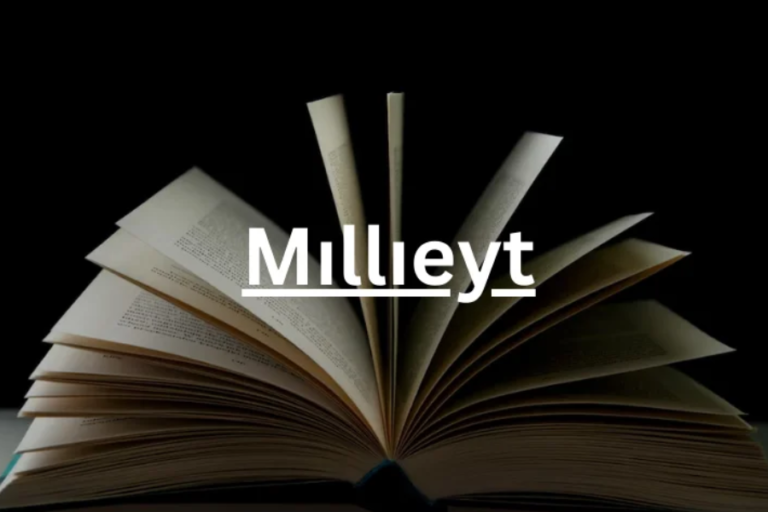Introduction
In an increasingly interconnected world, the concept of national identity has taken on new significance. One term that embodies this essence is “mıllıeyt,” which refers to the collective identity of a nation, shaped by culture, history, language, and shared experiences. This article will delve into the various aspects of mıllıeyt, its implications on society, and its importance in maintaining cultural heritage.
Understanding Mıllıeyt
Definition of Mıllıeyt
Mıllıeyt can be understood as a combination of factors that contribute to a person’s or a group’s sense of belonging to a particular nation. It encapsulates everything from traditions and customs to the language spoken and the historical narratives that are taught. The term is deeply rooted in the notion of nationalism and plays a crucial role in how individuals perceive themselves within the context of their country.
Historical Context
The concept of mıllıeyt has evolved over centuries, influenced by various socio-political events. National identity has often been a response to colonialism, globalization, and migration. In many cases, nations have rallied around a common identity to assert their sovereignty and distinctiveness in the face of external pressures.
The Components of Mıllıeyt
Culture and Tradition
Culture is perhaps the most significant component of mıllıeyt. It encompasses the arts, music, cuisine, and rituals that define a nation. Celebrations, holidays, and festivals serve to reinforce cultural ties and foster a sense of community among individuals. For instance, traditional dances, songs, and folklore are vital in passing down values and beliefs from one generation to the next.
Language
Language is a powerful vehicle for expressing mıllıeyt. It not only facilitates communication but also embodies the nuances of a culture. Linguistic diversity within a nation can reflect the multifaceted nature of its identity. In many cases, preserving a national language becomes a matter of cultural pride and survival, especially in regions where multiple languages coexist.
Shared History
The shared history of a nation significantly contributes to its mıllıeyt. Historical events, both triumphs and tragedies, shape the collective memory of a population. National narratives often emphasize key moments in history—such as independence movements, wars, and social reforms—that define the character of a nation and its people.
The Importance of Mıllıeyt
Fostering Unity
Mıllıeyt plays a crucial role in fostering unity among citizens. In diverse societies, a strong sense of national identity can help bridge cultural divides, encouraging collaboration and mutual respect. When individuals identify with a common national narrative, it creates a shared purpose that can transcend individual differences.
Promoting Cultural Heritage
Understanding and embracing mıllıeyt is essential for the preservation of cultural heritage. In a world where globalization often leads to homogenization, a strong national identity can safeguard unique traditions and practices. It empowers communities to celebrate their heritage and pass it down to future generations.
Encouraging Civic Engagement
A well-defined mıllıeyt can encourage civic engagement and participation in democratic processes. When individuals feel a connection to their nation, they are more likely to contribute positively to society—whether through voting, volunteering, or advocating for social change. This engagement is vital for the health of a democracy and the overall well-being of a nation.
Challenges to Mıllıeyt
Globalization
While globalization brings about economic growth and cultural exchange, it also poses challenges to mıllıeyt. The blending of cultures can dilute distinct identities, leading to a loss of traditional practices and languages. Nations must find a balance between embracing global influences and preserving their unique cultural identities.
Immigration and Multiculturalism
In many countries, immigration has created multicultural societies. While this diversity enriches the national fabric, it can also lead to tensions regarding mıllıeyt. Questions of belonging and identity can arise, necessitating a dialogue about inclusivity and the definition of national identity.
Political Polarization
Political polarization can threaten the cohesion of mıllıeyt. When different factions within a nation disagree on what constitutes their national identity, it can lead to divisions and conflicts. It is essential for leaders to foster a sense of inclusivity, ensuring that all voices are heard in the narrative of national identity.
Strategies for Strengthening Mıllıeyt
Education and Awareness
Education plays a pivotal role in shaping mıllıeyt. By incorporating lessons on national history, culture, and language into school curricula, societies can cultivate a sense of belonging among younger generations. This education should also include discussions about the importance of diversity and the various components that make up a nation.
Cultural Exchange Programs
Cultural exchange programs can strengthen mıllıeyt by fostering understanding and appreciation among different communities. These programs encourage individuals to learn about each other’s traditions and values, promoting dialogue and collaboration across cultural boundaries.
National Celebrations
National celebrations and holidays are vital in reinforcing mıllıeyt. These events provide opportunities for citizens to come together and celebrate their shared identity. By emphasizing the importance of these occasions, nations can strengthen the bonds among their citizens and promote a collective sense of pride.
Also Read: Discovering Insights Through the //vital-mag.net Blog
Conclusion
Mıllıeyt is a multifaceted concept that encapsulates the essence of national identity. It is shaped by culture, language, and history, and plays a crucial role in fostering unity and preserving cultural heritage. However, in a rapidly changing world, challenges to mıllıeyt are ever-present. By embracing education, cultural exchange, and national celebrations, societies can strengthen their sense of identity and ensure that it continues to thrive for generations to come.


